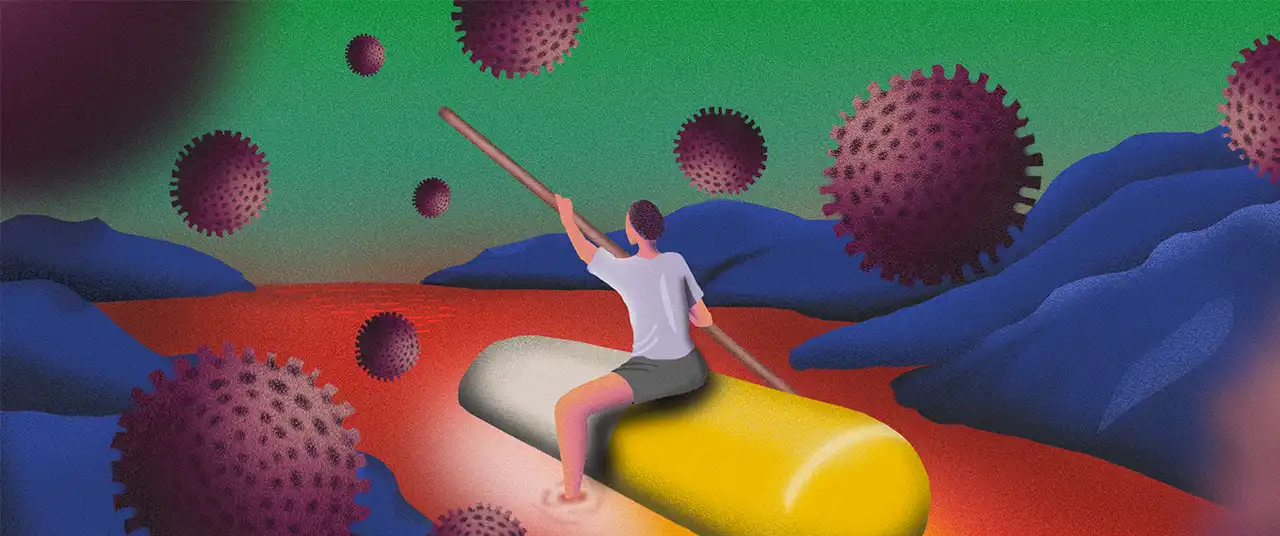What happens when our medicines stop working






“If we use antibiotics when not needed, we may not have them when they are most needed,” Dr Tom Frieden, former director of the US CDC.
Antimicrobial resistance is knocking at humanity’s door, and the warnings have been ringing loud and clear. Since the advent of antimicrobial medicines in the 1920s, these drugs have increased our average lifespan by 23 years and saved countless lives. However, the overuse and misuse of antibiotics, antifungals, antivirals, and antiparasitics have created a vicious cycle of resistant pathogens, rendering these life-saving medicines increasingly ineffective.
We now stand at the brink of a post-antibiotic era, where common diseases are no longer treatable by these drugs.

Global health crisis
But what happens when bacteria adapt, and our bodies stop responding to these medicines? That’s when antimicrobial resistance (AMR) sets in. “Common diseases are becoming untreatable.” That’s the blunt warning issued on page one of a 2019 United Nations report on drug resistance.
When antibiotics and other antimicrobials lose effectiveness, infections become harder—or even impossible—to treat, raising the risk of disease spread, severe illness, and death. Misuse, such as taking antibiotics when they’re not needed or failing to follow prescriptions, enables bacteria to adapt and become resistant, complicating future treatments.
As antibiotics lose their effectiveness, experts have warned for years of a ‘silent’ global health crisis. Some argue that the rise in AMR cases could make the COVID-19 crisis pale in comparison.
“Antimicrobial resistance could unwind 100 years of medical progress, making infections that are easily treatable today a death sentence,” said Tedros Adhanom Ghebreyesus, the World Health Organization director-general, at a news conference in September. “No country is immune to this threat, but low- and middle-income countries bear the greatest burden.”
Indian picture
One out of every eight people worldwide lives in India, and with that concentration of humanity comes an equally concentrated problem of antimicrobial resistance. India’s struggle with AMR is paradoxical, with people suffering both from a lack of access to antibiotics and from fatal AMR infections.
According to a analysis, between 300,000 to 1.1 million Indians lost their lives to AMR in 2019. The superbug crisis has taken a toll on India's healthcare system.
The three most common antibiotic-resistant pathogens here are E. coli, causing gut infections; Klebsiella pneumoniae, which leads to pneumonia and urinary tract infections; and Acinetobacter baumannii, associated mainly with hospital-acquired infections.
A concerning number of children in India are born with infections resistant to most antibiotics, resulting in over 58,000 infant deaths within a year. Just five years ago, the situation wasn’t this severe. The rapid rise of AMR in India stems from multiple factors: lack of clean water, harmful bacteria prevalent from soil to sewage, and widespread environmental contamination.
With a population of 1.5 billion, India is well aware of the urgency of addressing Antimicrobial Resistance (AMR). The Indian government has already created a national action plan to tackle the issue, which recognizes the importance of tackling all four key drivers of AMR: humans, animals, food, and environment.
Recognizing the country-specific challenges like untreated water waste, improper discard of livestock, and use of sludge in agriculture, the plan takes a comprehensive approach to address the issue from multiple angles.
While similar factors drive AMR in other countries, India lacks adequate data and research on AMR trends. Researchers, scientists, and doctors are charting new territory in the fight against AMR, with experts calling for a unified data system and standard operating procedures to monitor AMR effectively. Planning, monitoring progress, and reassessing the approach are critical steps to ensure India can manage this growing crisis effectively.
Unschooled
AMR has always been an integral part of our everyday lives, but it's been largely ignored in the pages of our science textbooks and in public discourse. However, after spending nearly two years cooped up in our homes during the pandemic, AMR has suddenly been thrust into the spotlight.
With a newfound focus on health, food, and medicine, people have become increasingly aware of the importance of AMR and the urgent need to address it. The global COVID-19 lockdown has served as a wake-up call, making AMR one of the hottest topics in health and science today.
Every year since 2015, the World Health Organization has designated November 18-24 as World AMR Awareness Week (WAAW) to draw attention to the alarming problem of antimicrobial resistance, which is affecting the health of humans, animals, plants, and the environment alike. In 2024, the theme for WAAW is “Educate. Advocate. Act Now.”, chosen after receiving valuable input from around 200 stakeholders from diverse areas of health.
Silent threat
Year after year, medical journals and publications report on this “invisible killer,” often referred to as the “silent pandemic” or even “evolution in action.” Beyond human health, antibiotics are used heavily in agriculture, livestock farming, and aquaculture, further fueling their spread across our environment.
Throughout November, the Good Food Movement will cover these topics and more as part of the World Health Organization’s AMR awareness week.
{{quiz}}
Explore other topics
References
- https://pubmed.ncbi.nlm.nih.gov/31733401/
- https://www.who.int/news/item/29-04-2019-new-report-calls-for-urgent-action-to-avert-antimicrobial-resistance-crisis
- https://www.who.int/news-room/events/detail/2024/09/26/default-calendar/un-general-assembly-high-level-meeting-on-antimicrobial-resistance-2024
- https://www.fic.nih.gov/News/GlobalHealthMatters/may-june-2022/Pages/paradox-antimicrobial-resistance-india.aspx
- https://indianexpress.com/article/health-wellness/antimicrobial-resistant-bacteria-lancet-study-deaths-9348679
- https://pmc.ncbi.nlm.nih.gov/articles/PMC4775002/
- https://health.economictimes.indiatimes.com/news/industry/need-for-unified-data-systems-and-sops-for-amr-surveillance-in-india-experts/109347273











